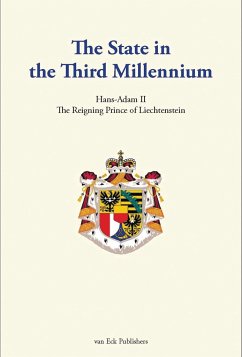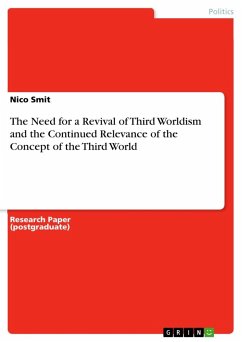Analyzes the forces that have shaped human history such as religions, ideologies, military technology and economics. This title explores the ways to make the traditional democratic constitutional state both more democratic and more efficient. It discusses strategies on how to realize the democratic constitutional state in the 3rd millennium.
What should the state look like in the third millennium? This is the question addressed in this book by Hans-Adam II, Prince of Liechtenstein, drawing on two decades of experience as ruler of a constitutional monarchy.Many might be astonished that the monarch of a tiny principality should presume to advise the rest of the world on such a subject. Nonetheless, Prince Hans-Adam believes that much can be learned from the experience of Liechtenstein's direct democracy, and from the new model which he has tried to implement there. Over the centuries the Prince's family has seen states and empires come and go, typically bringing much suffering and destruction. Starting from the assumption that a state and its ruler should serve the people, he believes it is time to abandon outdated state models, which were developed by and for agrarian societies.Most of the reforms discussed here have actually been realized in Liechtenstein, with the support of either the parliament or the people, in the popular votes which are a feature of Liechtenstein's democracy. Though such a state model might not be adequate for larger states, the Prince argues that the model he proposes is not dependent on state size. Instead, the governing principles for the state of the future are that the state should serve the people, and not vice versa; that democracy, not ideology, should determine the actions of the state and its rulers; and that self-determination is more important than the inviolability of existing borders.Drawing on both his study of the origins of the state and democracy, and his experience as ruler, the Prince sets out here his unique and personal vision of the state of the third millennium, and the strategies by which it might be achieved.
Hinweis: Dieser Artikel kann nur an eine deutsche Lieferadresse ausgeliefert werden.
What should the state look like in the third millennium? This is the question addressed in this book by Hans-Adam II, Prince of Liechtenstein, drawing on two decades of experience as ruler of a constitutional monarchy.Many might be astonished that the monarch of a tiny principality should presume to advise the rest of the world on such a subject. Nonetheless, Prince Hans-Adam believes that much can be learned from the experience of Liechtenstein's direct democracy, and from the new model which he has tried to implement there. Over the centuries the Prince's family has seen states and empires come and go, typically bringing much suffering and destruction. Starting from the assumption that a state and its ruler should serve the people, he believes it is time to abandon outdated state models, which were developed by and for agrarian societies.Most of the reforms discussed here have actually been realized in Liechtenstein, with the support of either the parliament or the people, in the popular votes which are a feature of Liechtenstein's democracy. Though such a state model might not be adequate for larger states, the Prince argues that the model he proposes is not dependent on state size. Instead, the governing principles for the state of the future are that the state should serve the people, and not vice versa; that democracy, not ideology, should determine the actions of the state and its rulers; and that self-determination is more important than the inviolability of existing borders.Drawing on both his study of the origins of the state and democracy, and his experience as ruler, the Prince sets out here his unique and personal vision of the state of the third millennium, and the strategies by which it might be achieved.
Hinweis: Dieser Artikel kann nur an eine deutsche Lieferadresse ausgeliefert werden.








